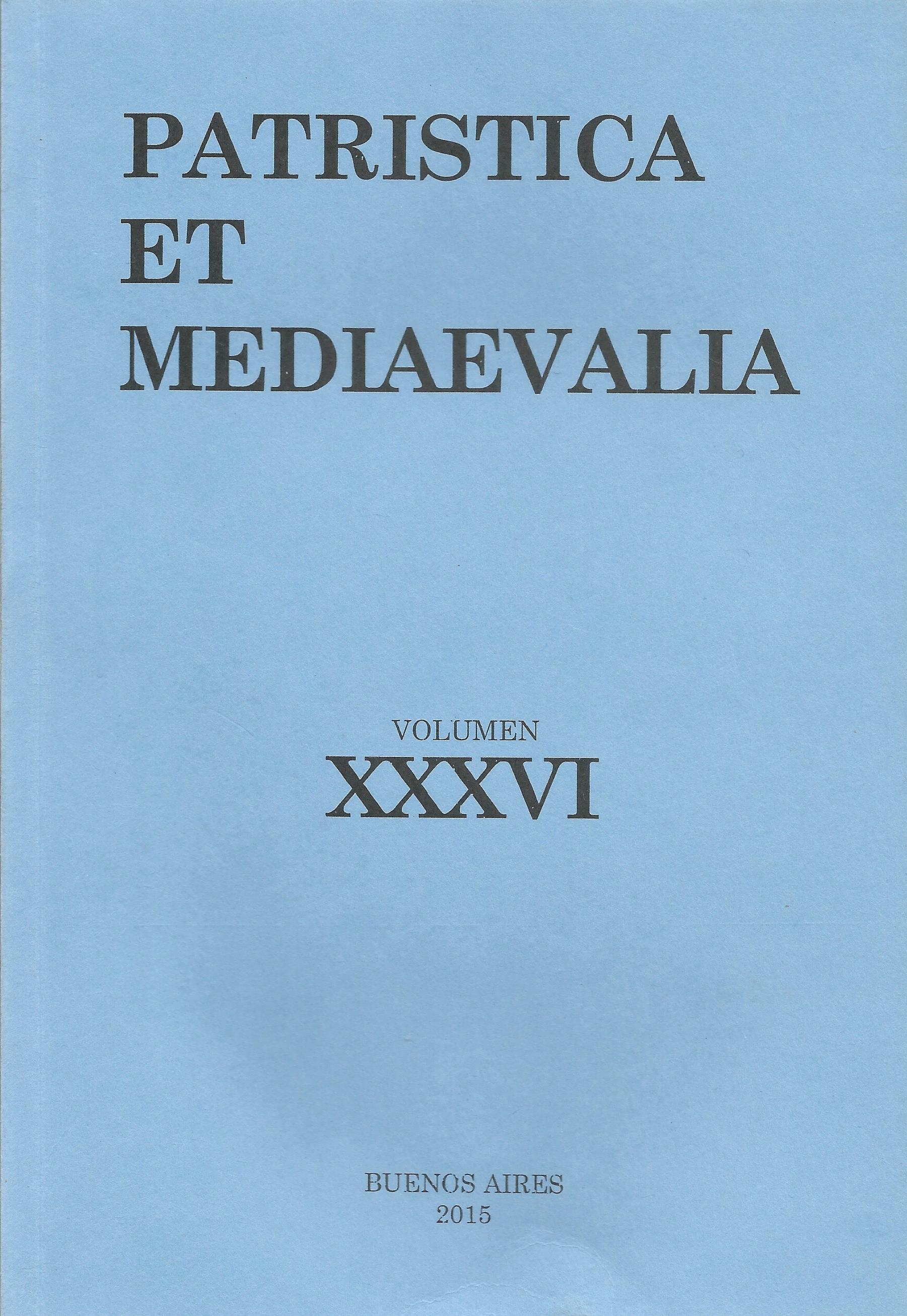Nominalist Interpretations of the Agent Intellect in the 14th Century: Buridan, Oresme and Biagio Pelacani of Parma
Abstract
In this work we study the version of the agent intellect according to three thinkers of 14th century: Juan Buridan, Nicolas Oresme and Biagio Pelacani of Parma. The three versions are nominalists because –as Ockham– they do not accept the real distinction between the agent and possible intellect.Downloads
References
Bazanna, A., Bériou, N. & Guichard, P. (2005). Averroès et l’averroïsme. Lyon: Presses Universitaires de Lyon.
Bettoni, E. (1941). Il processo astrattivo secondo Duns Scoto. Studi Francescani, 38(2), 143 y ss.
Bobba, R. (1896). La dottrina dell’intelleto in Aristotele e nei suoi piú illustri interpreti. Turin: C. Clausen.
Corvino, F. (1983). L’evoluzione dell’aristotelismo nel passaggio dal Medievo al Rinascimento. Aristotelismo Veneto e scienza moderna, vol. II, I. Padova: Antenore.
Dewender, Th. (1996). Lawrence of Lindores and his Commentaires on Aristotle. En Marenbon, J (ed). Aristotle in Britain during the Middle Ages. Turnhout: Brepols, 323-335.
Grabmann, M. (1965). Interpretazione medioevali del nous poietikos. Padova: Antenore.
Hamelin, O. (1953). La théorie de l’intellect d’aprés Aristote et ses commentateurs. Paris: Vrin.
Jolivet, J. (1997). Étapes dans l’histoire de l’intellect agent. Perspectives arabes et médiévales sur la tradition scientifique et philosophique grecque, 569-582.
Michalski, K. (1928). La lutte autour de l'áme au XIVe et au XVe siecle. Résumés des communications présentées au congrès international des sciences historiques. Oslo, 116-118.
Pannacio, Cl. (2006). Le nominalisme d'Oresme et la sémantique de la connotation dans les Quaestiones in Aristotelis De anima”. Caroti, S. (ed). Ad ingenii acuitionem. Louvain la Neuve: Fédération Intemational des Instituts d'Études Médiévales, 281-301.
Pluta, O. (1989). The Question of Immortality in Lawrence of Lindores's Quaestiones in Aristotelis libros De anima. En Link-Salinger, R. (ed.), Of Scholars, Savants, and Their Text. Studies in Philosophy and Religious Thougth. Essays in Honor of Arthur Hyman. New York: Peter Lang Inc., International Academic Publishers, 183-199.
Renan, E. (1992). Averroes y el averroísmo. Madrid: Hiperión.
Rignani, O. (2005). Biagio Pelacani e il senso agente. Corpo e anima, Atti del Convengo Internazionale, Firenze. Turnhout: Brepols, 247-266.
Sellés, J. (2002). El entendimiento agente según Tomás de Aquino. Revista Española de Filosofía Medieval, 9, 105-124.
Sellés, J. (2003). ¿Personalización o despersonalización del intelecto agente? Polo y los filósofos árabes Avicena y Averroes. Studia Poliana, 5, 147-165.
Sellés, J. (2003). El conocer personal. Estudio del entendimiento agente según Leonardo Polo. Cuadernos de Anuario Filosófico, Serie Universitaria, n. 163. Pamplona: Servicio de Publicaciones de la Universidad de Navarra.
Sellés, J. (2004). Los filósofos del s. XIII que negaron el intelecto agente. Dar razón de la esperanza. Pamplona: eunsa, 1277-1300.
Sellés, J. (2005). El intelecto agente en los maestros franciscanos del s. XIII. Verdad y vida, 63(242), 127-148.
Sellés, J. (2005). El intelecto agente y las instancias cognoscitivas menores. Una propuesta desde Tomás de Aquino. Angelicum, 82(3), 611-617.
Sellés, J. (2006). La crítica atomista a la interpretaciónn griega y neoplatónica del intelecto agente. Intellect et imagination dans la Philosophie Médiévale. Actas du XIe Congrès International de Philosophie Médiévale de la Société Internationale pour l’Étude de la Philosophie Médiévale (SIEMP). Porto. 26-31-août-2002. Brepols: Turnhuot, 1389-1404.
Sellés, J. (2008). Los filósofos del s. XIII que afirmaron el intelecto agente. Anuario de Estudios Medievales CSIS, 38(1), 445-474.
Sellés, J. (2009). El intelecto agente según Alfonso, arzobispo de Toledo. Revista Española de Filosofía Medieval, 16, 95-121.
Sellés, J. (2009). El intelecto agente en el s. XIV. Revista Española de Filosofía Medieval, 15, 75-100.
Sellés, J. (2010). Las tesis novedosas sobre el intelecto agente de Juan de Jandún. Medioevo, 7, 4-18.
Sellés, J. (2011). El intelecto agente según Durando de San Porciano. Carthaginensia, 27(52), 345-358.
Sellés, J. (2011). El intelecto agente según Alfonso Fernández de Madrigal. Burgense, 52(1), 33-53.
Sellés, J. (2011). Dietrich de Freiberg (Teodorico el Teutónico) 1250-1310/20. Claves de un maestro medieval olvidado. Cuadernos de Anuario Filosófico, Serie Universitaria, n. 239. Pamplona: Servicio de Publicaciones de la Universidad de Navarra.
Sellés, J. (2012). El intelecto agente como acto de ser personal. Lagos. Anales del Seminario de Metafísica, 45, 35-63.
Spruit, L. (1995). Species intelligibillis from perception to knowledge. Leiden/New York/Köln: Brill.
Federici Vescovini, G. (1974). Le quaestiones de anima di Biagio Pelacani da Parma. Firenze: L. Olschki.
Zupko, J. (1989). John Buridan's Philosophy of Mind: An edition and traslation of book III of his "Questions on Aristotle's De Anima" (Third Redaction) with Commentary and critical and interpretative essays, vol. 1, UMI, Dissertation, Information Service, Cornell University.
Zupko, J. (2007). John Buridan on the immateriality of the intellect. En Logerlund, H. (ed). Forming the mind. Dordrech: Springer, 129-147.
1. The authors who publish in this magazine accept the following conditions:
-
They retain the copyright and grant to the magazine the right of the first publication, with the work registered under the Attribution-ShareAlike 4.0 International License that allows third parties to use what is published as long as they mention the authorship of the work and the first publication in this magazine.
-
They can make other independent and additional contractual agreements for the non-exclusive distribution of the version of the article published in this magazine (eg. include it in an institutional repository or publish it in a book) provided that they clearly indicate that the work was first published in this journal.
-
They are allowed and recommended to publish their work on the Internet (for example on institutional or personal pages).
2. AutoArchive Conditions. Authors are allowed and encouraged to distribute post-print electronic versions of their manuscripts because it promotes their circulation, a possible increase of quotation and a major reach among the Academic community. Color RoMEO: blue.













